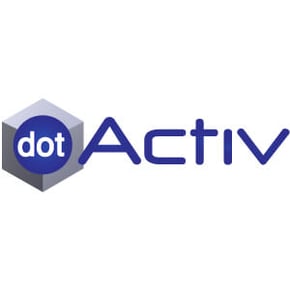
Managing a retail team is never a straightforward process. There are countless business, operational and strategic aspects to juggle to stay ahead. On top of that are the various personalities in the workplace across multiple roles, and multiple locations if you have them. If that sounds overwhelming, that’s because it is. However, if you can develop specialised skills - team management skills to be precise - you can be successful.
That’s what you’ll find below. We’ve pinpointed a few essential team management skills that you should focus on developing if you haven’t already. It’s worth noting that the below are not the only skills that you’d need to develop or foster. There are many more.
Added to that is the fact that to be truly effective when managing teams, it’s always a good idea to invest in and work with specialised team management software.

You must be able to inspire change in the business
Change is never an easy or straightforward process for a business. However, it’s critical to embrace it because, without it, you can lose your competitive edge and fail to adapt to the needs of your customers. There is also the point that change can allow you to spot and act on growth opportunities.
Of course, to fully embrace any change, you need to have a business and teams that are receptive to it.
That is where Prosci’s ADKAR model for change management comes in. It can help you to understand where you are in the change process. As a team leader, you can also use it to manage employee resistance, help employees transition through change and create a successful action plan and strategy.
Change is successful when your team or all individuals in that team are Aware of the need for change. Also when they have a Desire to participate in and support the proposed change, have Knowledge of how to change, and the Ability to implement the change. Finally, it’s important to have some form of Reinforcement to sustain the change once implemented.
So, using the ADKAR model, how can you inspire change? There are a few actions you can take.
Firstly, you need to make it a top priority. That means openly communicating with your team. Give them opportunities to spot areas to change for the better. Let them know that you’re willing to hear their opinions. If you can empower staff and colleagues and give them a voice, you can foster a retail environment where people are willing to share and are investing in improving the business. This can also improve overall team collaboration.
Secondly, you need to provide regular feedback. Once you’ve chosen a new goal or process and explained how you plan on achieving it, you must provide everyone involved with updates, be that through weekly meetings or email. If you’ve tasked multiple people, you can also use meetings to keep everyone accountable.
Thirdly, if you want to inspire change, you need to mitigate team fatigue and remove obstacles. While you can ensure initial buy-in for a project to change an aspect of your business, you will undoubtedly face fatigue and obstacles as a project runs its course.
To mitigate team fatigue, you can focus on small wins to show that what you’re doing is working. Change management isn’t only about the end goal. It’s also about ensuring the small wins that allow you to get to that goal, or change that process.

You must be able to manage and oversee projects
As mentioned above, if you want to drive change, after deciding on your goal or process, you need to choose how you’re going to achieve it.
Most likely, it’ll mean the creation of a detailed project with multiple facets and involving various people. That, of course, means you'll also need to know how to manage the project, thereby ensuring everything runs as it should.
We also mentioned the need to use specialised software to supplement your team management skills. This is one of those instances. With the right approach and dedicated software such as Activ8, you can keep any work project on track.
That includes projects for smaller or larger work-specific goals, such as, for example, a store revamp. With Activ8, you could create a project with the end goal being that of you reopening your store.
Within this specific project, you can add all the various tasks that would make up the project and link them together. You can also include milestones, provide each task with specific criteria and set deadlines to ensure everything runs smoothly and you complete the project as expected.
The fact that you can also add accompanying documents such as budgets, scope templates; including a purpose for the project as well as any potential risks mean you have complete control over everything that happens. To keep everything transparent, you can also include observers.
In having complete alignment, you’re in a position where your colleagues understand the purpose and end goal for the project. Because everyone has set deadlines and a clear understanding of what is expected of them, you can avoid unnecessary confusion and holdups.

You must be able to find a balance between tasking, trusting and tending
Besides having the software at hand to manage projects, it’s also important that you know how to delegate and manage the workload of your team.
In reality, it’s one of the most important team management skills you could have. Why? Because it can allow you to better manage your time and resources and not overwork your team.
And it all comes down to what is known as the ‘Tripod of Work’.
A simple management model designed by Gillian Stamp, the Tripod of Work is about enabling you as a team leader to create the optimal conditions for your team to be both effective and to work better together.
The success of this management model relies on you finding a balance between the ‘3T-Activities’; namely, Tasking, Trusting and Tending. That’s instead of simply dishing out orders and expecting your team to complete them.
Tasking refers to establishing the intended outcomes and time-scale for completion. Trusting refers to entrusting your team to use their ability to achieve your expected output. And Tending refers to monitoring that the work assigned is still relevant.
As for why you need to foster this skill, you only need to consider the benefits.
The combination of tasking and trusting allows for better judgement, which results in better decision-making. Tasking combined with Tending allows you to keep track of everything without being overbearing or micromanaging. Meanwhile combining Trusting and Tending ensures a sense of coherence that individuals in your team need to sustain their belief that the work is important.
With team management software such as Activ8, you can do all three and ensure you and your team are more effective.

You must be able to manage PEOPLE as individuals
Besides the ability to manage the everyday workload or your team, another critical team management skill is to be able to connect with people on an individual level.
We’ll touch on the reasons why it’s so important you get this right. For now, it’s worth pointing out that no two people in your team are alike. You’ll have people with different personalities, different strengths and weaknesses, and different approaches to work.
It’s your job to firstly connect with each person - and genuinely so. Anyone on your team needs to know that you see them as people first and employees second.
Then you need to understand what makes them tick. If you can understand how someone in your team approaches a challenge or how they’ll react to a task, you’ll be in a better position to manage them. Finally, you need to harness their strengths and mitigate their weakness to ensure they are as effective as possible.
As for why it’s critical to manage people as individuals, that’s simple. Without a genuine connection or understanding the people in your team, you may get compliance from them. They’ll do the work that’s required of them. However, they’re more likely to do it reluctantly. They won’t be fully invested or committed.
On the other hand, by connecting with each person on your team - treating them as individuals, you’ll create a team that is fully committed to completing the work you set out for them. What’s more, you can create a business environment where people want to work and have a vested interest in doing well. That’s because they know that if the business succeeds, so do they.
Conclusion
Activ8 is team management software for retail and it’s a powerful enabler for driving company culture. If you’re interested in pursuing a culture of transparency, accountability and high levels of work ethic then Activ8 is for you. Learn more by scheduling a demo below.


